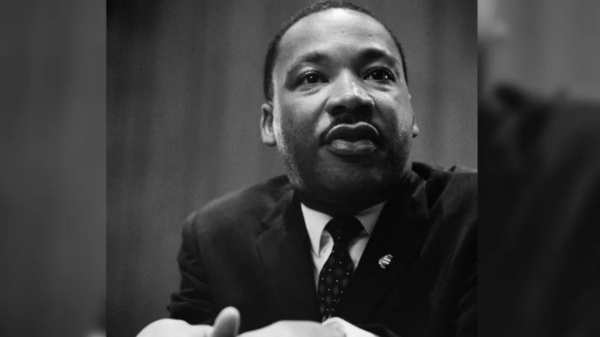by Royce West
Texas Senate

Nearly a month into a new year it’s cautionary, if not troubling, that much of America’s political energy is still invested in events surrounding the 2020 Presidential Election, including the election itself. But those events were so traumatic and dangerous to our Democracy that it is difficult and unwise to dismiss them without resolution.
For multiple reasons, results of the Presidential Election could not be called for four days after the November 3rd Election Day. Polls say that anywhere from 40 percent to 70 percent of Republicans still refuse to acknowledge that Joseph R. Biden was duly elected President of the United States. Then there’s the dubious and shameful milestone of January 6 when “visitors” to the nation’s capital violently sought to interrupt the peaceful transfer of power outside, while a plot was underway inside the halls of Congress to overturn valid Electoral College totals. One party does not think the violent attack warrants investigation. And while the other presses to move forward, it is challenged by external and internal opposition.
But it is 2022 and we are weeks away from the first event of Midterm Elections cycle. In Texas, the last day to register to vote in the March 1 Primary Elections is Monday, January 31, 2022. In-person Early Voting begins two weeks later on February 14. That’s right Valentine’s Day (Show your love)! In-person early voting ends Friday, February 25.
There’s a date within that span that pulls us back into the morass surrounding the 2020 Elections. February 18 is the last day to apply for a ballot by mail in Texas to be able to complete the process in time for March 1. It’s mail-in ballots that have become the tool used by a defeated 2020 Presidential candidate and former POTUS to sow discord and distrust of elections nationwide.
Accusations of fraudulent mail-in ballots led to calls to recount votes in several states – including Texas – which morphed into a crusade for election reform legislation by the party that lost the White House, and eventually, both chambers of Congress. But courts from coast-to-coast have dismissed alleged charges of rampant voting fraud. Even more curious in Texas is the need for election reform when the majority party has not lost a statewide election in nearly 30 years.
To the case at-hand, SB1 was finally approved by the Texas Legislature during the second Special Session of the Texas Legislature in 2021. Voting reform legislation was the main reason the Regular Session ended with both political parties furious, with one breaking quorum and leaders of the other calling for a Special Session. Voting and election reform bills are headliners of the current Washington D.C. political gridlock. SB1 is why some voters, Democrats and Republicans alike, must take extra steps to ensure that their ballots are counted.
In addition to new procedures that now apply to anyone who chooses to vote by mail, because of SB1, anyone who is registering to vote for the first time in Texas this year needs to be careful that the voter registration application they complete is the revised version, issued since SB1 became law. In recent weeks, there’s been varying interpretations within county elections departments as to whether the old applications are still valid.
SB1 eliminates and makes illegal, most all of the measures put in place in some Texas counties – most notably in Harris – when voters had to choose between exercising their rights and possible exposure to a deadly coronavirus several months before of a life-saving vaccine was available that now, has also been politicized.
The new law eliminates ballot drop-boxes used in Dallas and other counties. Now, if a voter who completes a mail-in ballot and then chooses to deliver it in-person, the ballot must be placed in the hands of an election worker. The election worker must record the voter’s name and the voter must provide a signature and present approved identification.
SB1 eliminated 24 hour and outdoor, temporary or mobile, voting locations. Polling locations for early voting cannot open before 6:00 a.m. or remain open later than 10:00 p.m. Also, only seniors or voters with disabilities can have ballots brought to them by election workers to vote from their automobiles.
Historically, civic organizations and churches have assisted voters by using their buses or vans to carry them to vote. Under the new law, a person who drives seven or more voters to vote must complete and sign a form if the voters are unrelated to the driver.
In years before the 2020 elections, Republicans voted by mail (also known as absentee ballots) more than Democrats. Now they’ve been demonized, by the sorest of sore losers. Under SB1, voting by mail requires additional information to be added to the ballot application and to the carrier envelope. Identifiers such as either the applicant’s driver’s license number or certain Social Security number information must match the identifier used when the voter registered to vote or the mail-in ballot application could be rejected.
In recent weeks, news reports highlighted the number of mail-in ballot applications rejected across the state. In Travis County, “about half” of 700 applications received at the time were rejected. Collin County reported that 20 percent of applications received were rejected due to the ID issue. Dallas County reports say about 40 percent of applications were rejected because applicants submitted old applications. Last Summer, the Secretary of State’s office reported that hundreds of thousands of voter registration files either lacked a driver’s license number or the SSN information or both. The numbers reportedly have decreased since.
The question is with the clock ticking toward March 1, how many of these applications problems will be fixed? I encourage voters not to wait until the last minute to find out.
Also Gov. Abbott, in recognizing there are problems procuring enough SB1 compliant applications, it would be a great time to issue an executive order authorizing ONLINE VOTER REGISTRATION. I truly believe it would be in the best interest of voters in the State of Texas.
For more information, please contact Kelvin Bass at 214-467-0123.









You must be logged in to post a comment Login